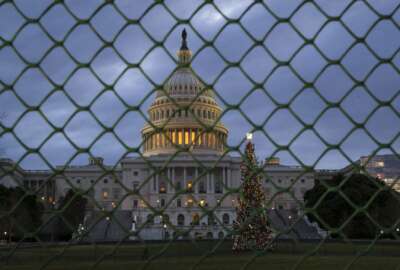

During a shutdown, health insurance coverage under the Federal Employees Health Benefits Program continue for up to a year for workers in a nonpay status due to the...
Confused about what the longest government shutdown in history means to your basic work-related benefits? If you are, welcome to a fast-growing club. Even after more than 20 shutdowns, workers, officials and members of the public continue to learn what both the long and short-term consequences are during a shutdown.
Friday was the second two-week period when more than 800,000 civil servants didn’t get a paycheck. So what happens to benefits they pay for out of that blank paycheck?
During a shutdown, health insurance coverage under the Federal Employees Health Benefits Program continue for up to a year for workers in a nonpay status due to the shutdown. The program covers more than 4 million active and retired federal and postal workers, spouses and survivors enrolled in the program run by the government. Under it, workers and retirees can pick from dozens of private sector health plans ranging from local health maintenance organizations to national brands like Blue Cross and GEHA. The government, which pays about 70 percent of the total premium, will continue to make its contributions during shutdowns.
Coverage will also continue for feds who have life insurance under the government’s Federal Employees’ Group Life Insurance program
Health care expenses covered under flexible spending accounts will not be reimbursed until the employee returns to a pay status. Eligible dependent care expenses incurred during the nonpay status may be reimbursed up to whatever balance is in the employee’s dependent care account, according to the National Active and Retired Federal Employees association.
Coverage under the Federal Long Term Care Insurance Program continues as long as premiums are paid. If Long Term Care Partners, which manages the program, does not receive any premiums for three consecutive pay periods, it will begin directly billing the enrollee.
Coverage under the Federal Employees Dental and Vision Insurance Program also continues, NARFE said. Employees were scheduled to be direct billed for past due premiums with no premium paid for two consecutive pay periods, but this was extended to a third.
This essentially means that the government would have to be shutdown for six weeks before hearing from FEDVIP plans and LTC Partners, NARFE advised members.
Workers with insurance under the option WAEPA life insurance program continue to be covered during shutdowns. WAEPA has waived all premium fees for January for all insured members, including those not impacted by the shutdown.
If members have already made a payment, it will be credited on their next bill. Letters are forthcoming that designate the exact amount credited for each member. Those with questions are encouraged to visit the organization’s FAQs page to learn more, or contact WAEPA’s Member Services team Monday through Friday between 8:30 a.m. to 5 p.m. EST.
By Amelia Brust
The inventor of liquid paper, Bette Nesmith Graham, mother of Monkees guitarist Michael Nesmith, created the substance in 1954 while working as a secretary and typist in a bank to cover up her frequent typos. While in the development stages of her formula, she was fired for writing the wrong signature on a document at work, giving her the opportunity to make her burgeoning business full-time.
Source: The New York Times
Copyright © 2025 Federal News Network. All rights reserved. This website is not intended for users located within the European Economic Area.
Mike Causey is senior correspondent for Federal News Network and writes his daily Federal Report column on federal employees’ pay, benefits and retirement.
Follow @mcauseyWFED


